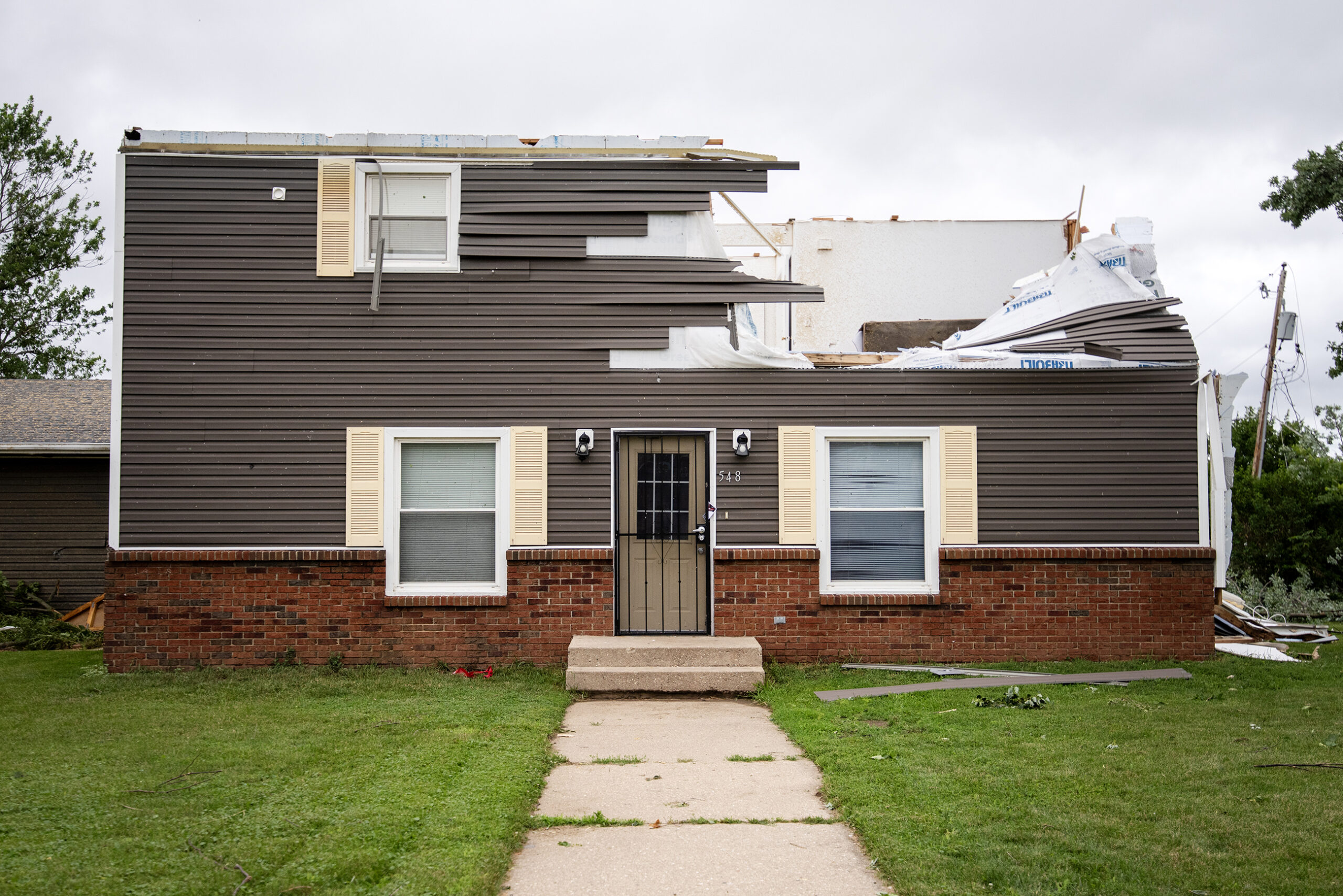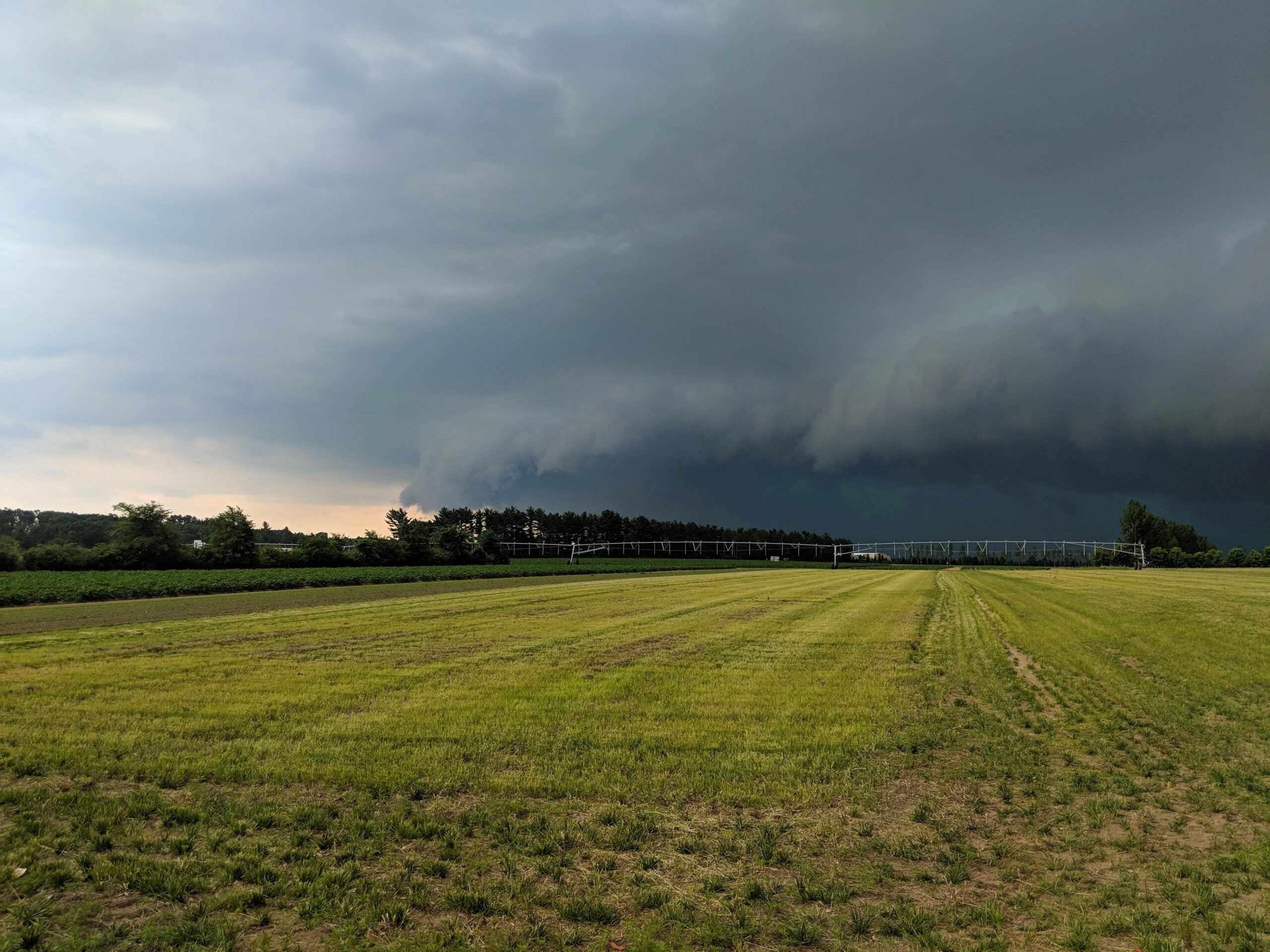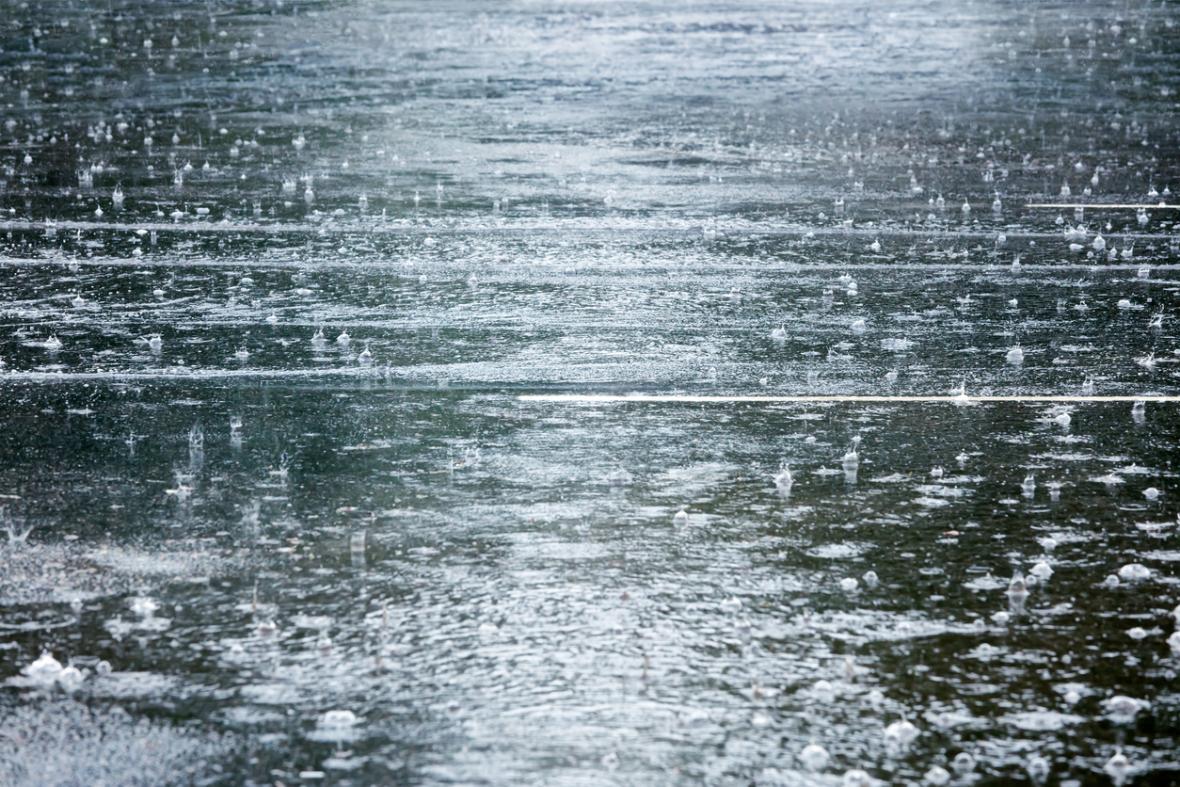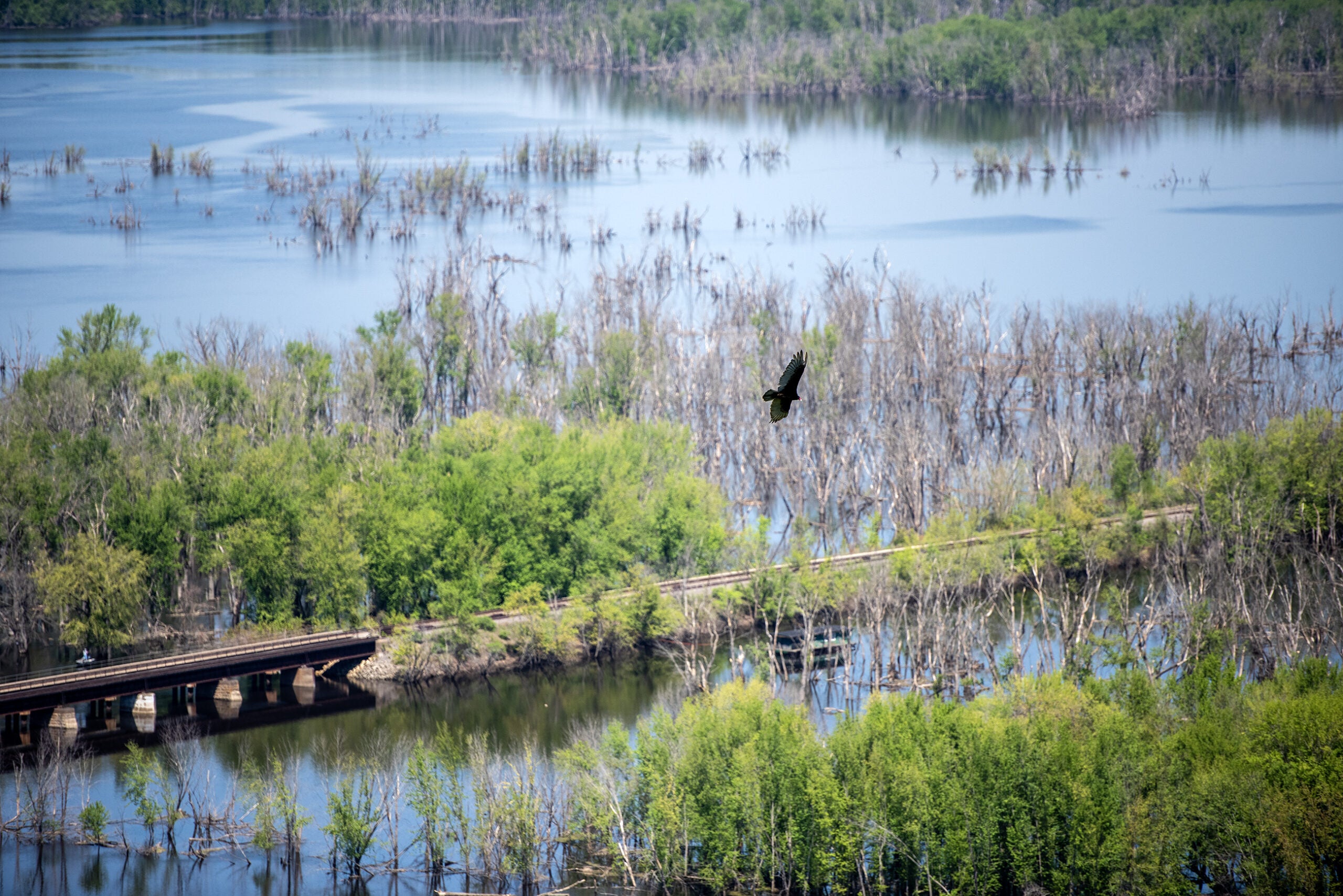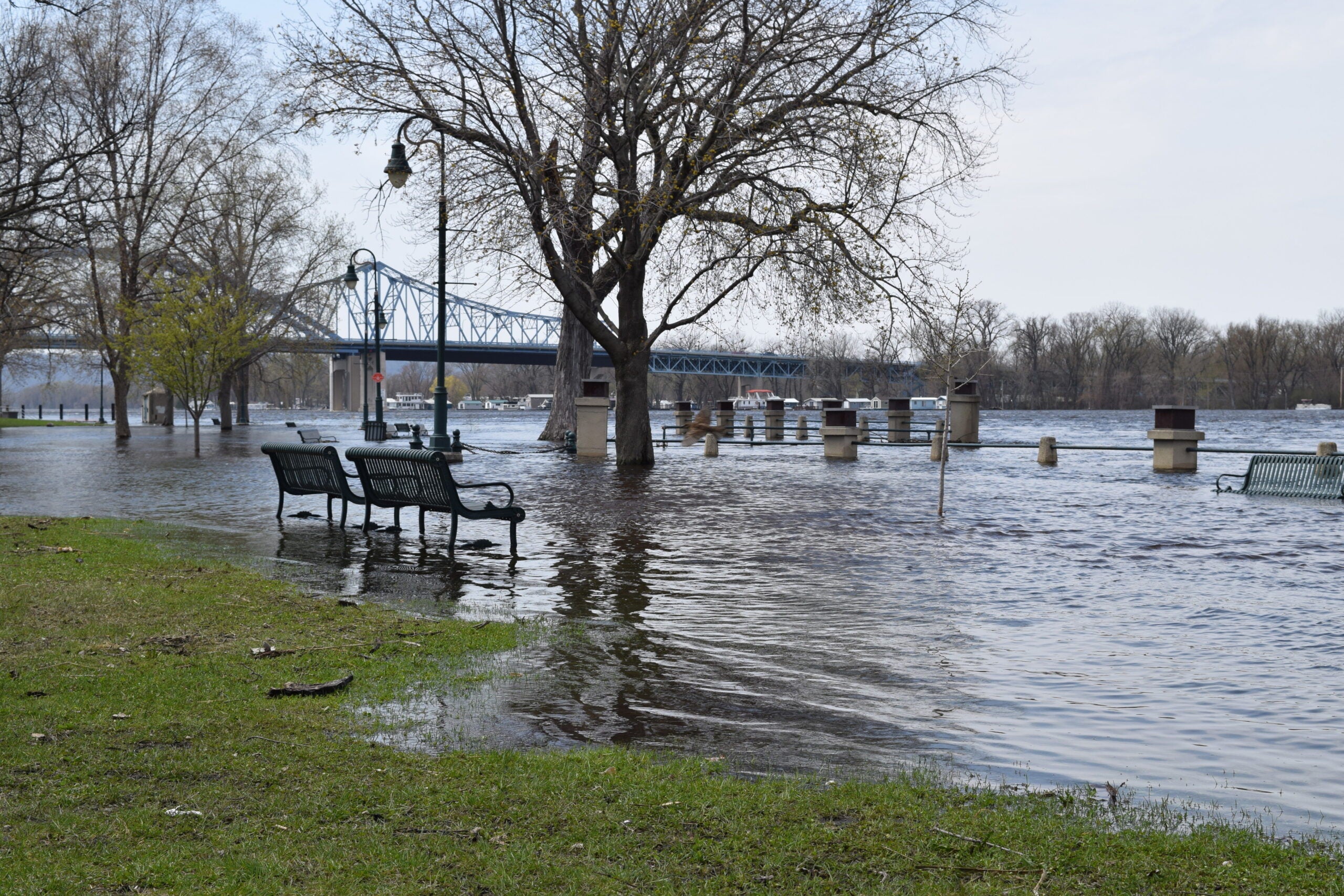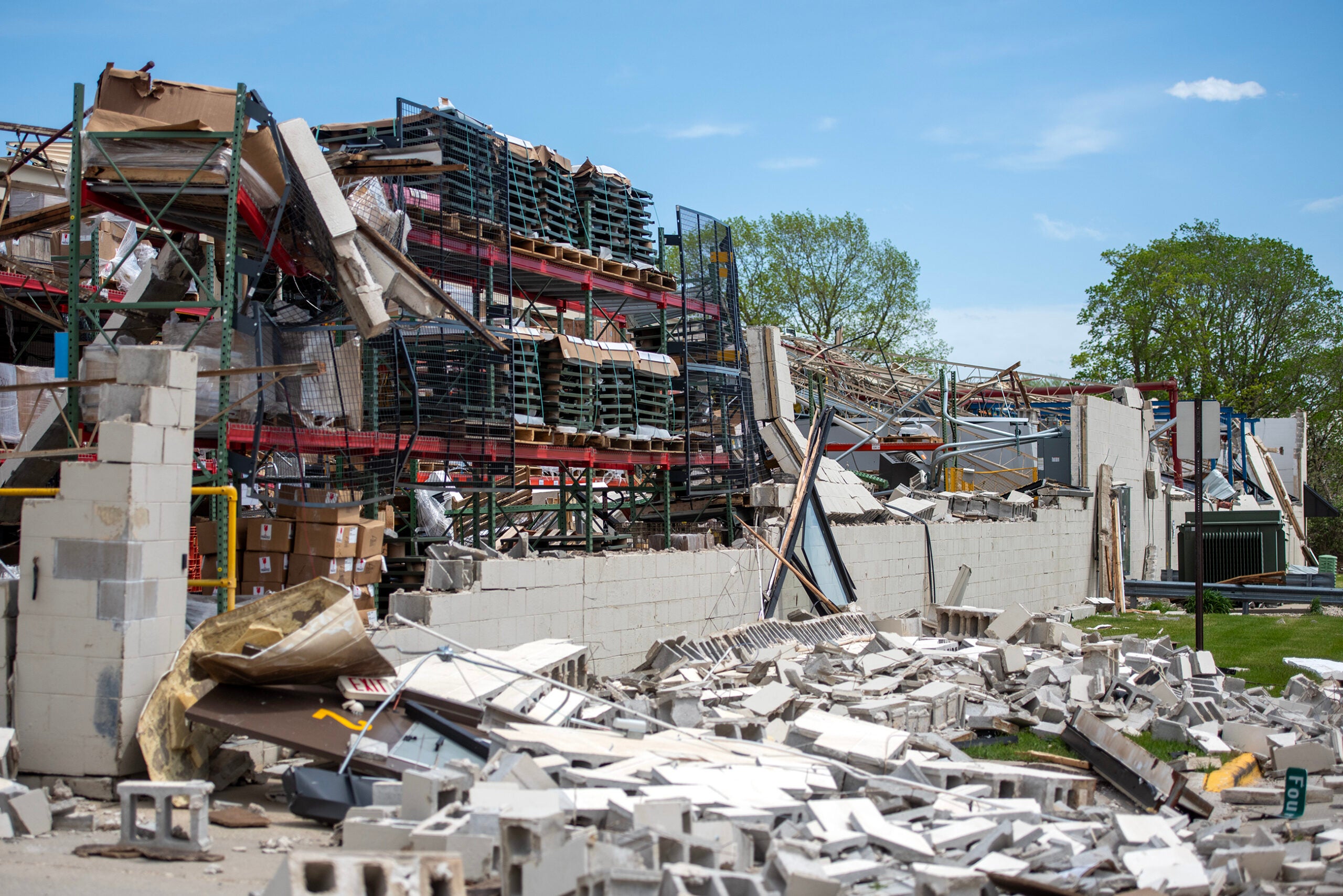Wisconsin is seeing an active storm season this summer, bringing several rounds of tornadoes and the risk of flooding.
Six tornadoes hit the state on Saturday, including one that damaged part of the City of Janesville. The state also saw the first ever tornadoes recorded in the month of February and five tornadoes that hit western and central Wisconsin in late May.
Jonathan Naylor, meteorologist with the National Weather Service in La Crosse, said a southwesterly flow of air has been bringing in moisture and warm temperatures, some of the ingredients needed for severe storms.
News with a little more humanity
WPR’s “Wisconsin Today” newsletter keeps you connected to the state you love without feeling overwhelmed. No paywall. No agenda. No corporate filter.
He said it’s not unusual for the state, but it’s a stark difference from last summer’s prolonged drought conditions.
“There’s definitely that kind of shock when you compare last year to this year, Naylor said. “We’ve had quite a few active events already, and certainly with the pattern that we’re in, we can’t rule out that we could see more active severe weather events.”
To stay safe in the coming summer months, Naylor said residents should “stay vigilant” about the forecast, checking for the possibility of severe weather and taking action when the risk arrives.
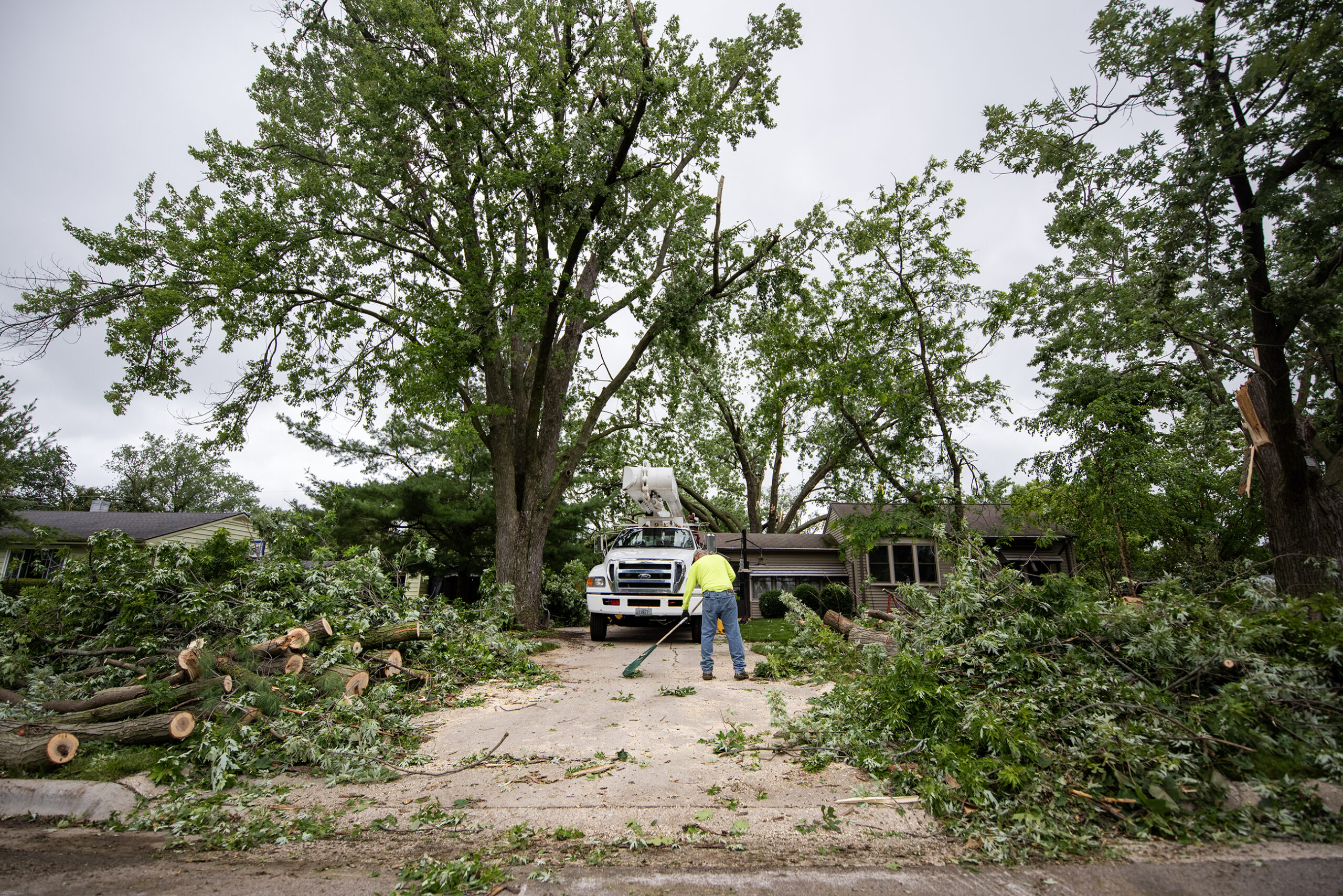
Check for weather alerts in multiple ways
Staying up to date on weather alerts is especially important when there is a risk of tornadoes, according to Naylor. He recommends people have more than one way to receive tornado warnings, such as an NOAA weather radio.
“Making sure you have your phone charged for any wireless alerts you might get for tornado warnings, paying attention to local media, just having multiple sources to get warnings on days that are more active,” he said.
He said weather alerts can also be found on the National Weather Service’s website, Facebook and Twitter.
Andrew Beckett, public information officer for Wisconsin Emergency Management, said residents also need to know where they’re going to go when they receive a tornado alert.
“Basements are considered one of the safest places to go,” he said. “If a basement is not available, you want to make sure you go to a ground-floor interior room of a sturdy building, something that doesn’t have windows, in order to put as much distance between yourself and the outside as possible.”
He said checking weather alerts and having a plan for seeking shelter is also important when camping or spending time outdoors. He said a portable weather radio can make sure campers or hikers are getting alerts in areas that don’t have cell service.
Even if a severe storm doesn’t have the risk of tornado, Beckett said lightning strikes can also be extremely dangerous, even for people miles away from the center of a storm.
“If you can hear thunder, you should understand that there is a risk that lightning could strike nearby,” he said. “So you need to do things like head indoors in order to make sure that you stay safe.”
Beckett said an enclosed structure is the best place to shelter from lightning, but people sheltering in a vehicle should avoid touching metal surfaces.
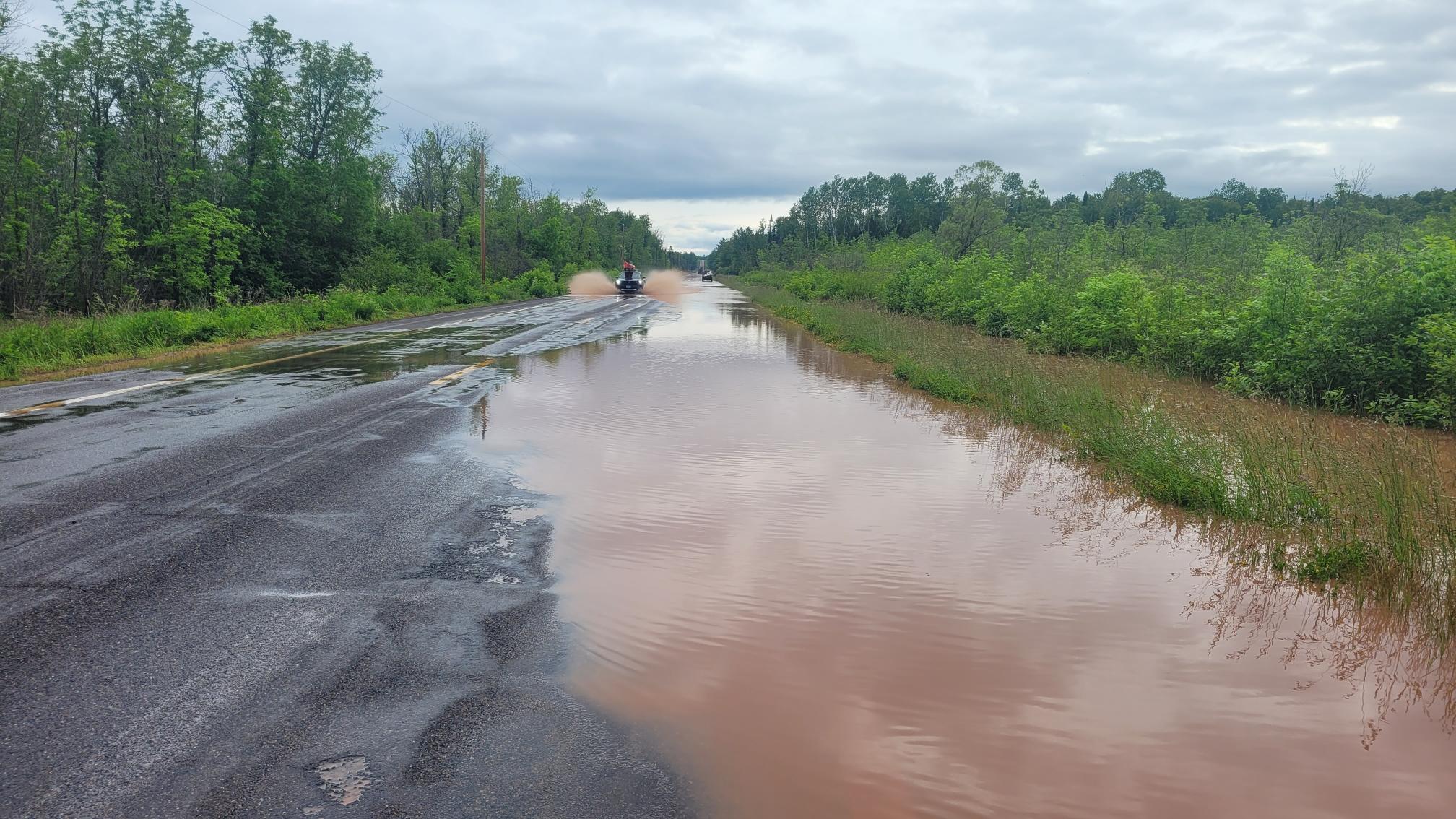
Have a plan to reach higher ground as flood waters rise
This summer’s repeated storms have also brought an increased risk of flooding.
The Mississippi River is at minor to moderate flood stage along southwestern Wisconsin. As of Tuesday, the National Weather Service had also issued flood warnings for the Yellow River at Necedah, the Trempealeau River at Dodge, the Black River near Galesville, the Baraboo River near Baraboo, the Wisconsin River at Portage and the Rock River at Afton.
Beckett said people in areas that are prone to flooding should identify higher ground nearby and make sure everyone in their household knows that evacuation point. He said people should also avoid walking or driving through flood waters.
“You may think that you know how deep that water is, but it can very easily be a situation where roads have washed out, a culvert has washed out, there’s large potholes or sinkholes that have formed beneath the surface of that water,” he said.
Information from Mayo Clinic Health System said flood water can carry pathogens that cause gastrointestinal illnesses like diarrhea and hazardous chemicals from agricultural runoff or households.
The health system also warned people to be mindful of food safety, discarding items that came into contact with flood waters and avoiding opening a fridge or freezer during a power outage to keep food cool.
Wisconsin Public Radio, © Copyright 2025, Board of Regents of the University of Wisconsin System and Wisconsin Educational Communications Board.

